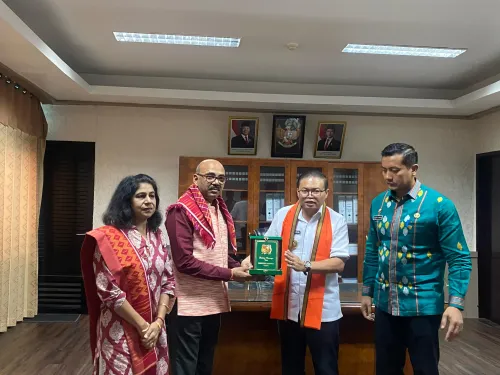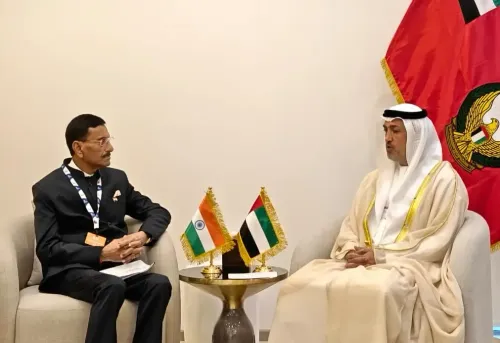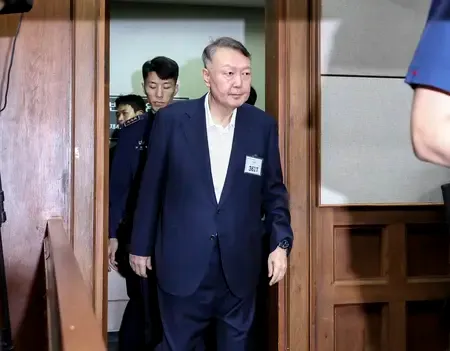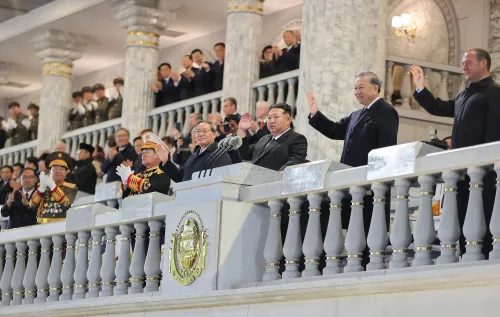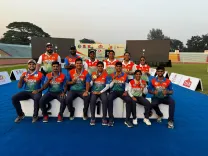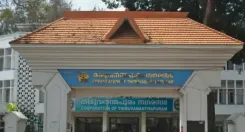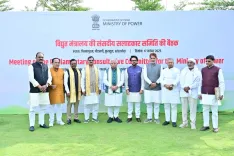Should North Korea Consider Humanitarian Exchanges for Separated Families?
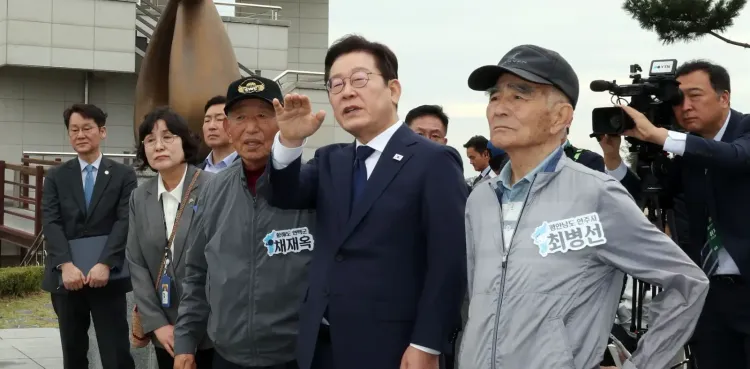
Synopsis
Key Takeaways
- Lee Jae Myung calls for humanitarian exchanges between separated families.
- The Korean War left many families divided, and communication is currently non-existent.
- Efforts for family reunifications have been ongoing since 2000.
- The current inter-Korean relationship is marked by hostility.
- Time is of the essence for elderly family members wishing to reunite.
Seoul, Oct 3 (NationPress) South Korean President Lee Jae Myung stated on Friday that North Korea ought to allow families split apart by the 1950-53 Korean War to verify the status of their loved ones and share letters, especially given the lack of any advancements in inter-Korean relations.
Since his inauguration in June, Lee has made attempts to reach out to North Korea to repair the strained relationship; however, tensions continue to be elevated on the divided Korean Peninsula as North Korean leader Kim Jong-un has dismissed any dialogue with South Korea and characterized the relationship as one between “two states hostile to each other.”
“It is incumbent upon the political leaders from both South and North to enable separated families to ascertain whether their relatives are still alive and, at a minimum, exchange letters,” he expressed during a gathering with elderly individuals who escaped to South Korea from the North during the conflict.
The two nations remain technically at war, as the Korean War concluded with an armistice instead of a peace treaty. The inter-Korean border is tightly controlled, and there are no mail, phone, or direct communication channels available for ordinary citizens of both Koreas.
“I urge the North to contemplate (these actions) for humanitarian reasons,” he added at the Ganghwa Peace Observatory in Incheon, west of Seoul, which overlooks North Korea.
“Even amidst military and political competition and conflict, (these actions are essential) from a humanitarian perspective.”
Lee's comments coincided with the onset of the extended Chuseok holiday, shortly after Kim reiterated his antagonistic position against South Korea, recalling his “good memory” of former US President Donald Trump.
In 2023, Kim reiterated that inter-Korean relations are characterized by “two states hostile to each other” and vowed not to pursue reconciliation or unification with South Korea.
Lee expressed that ideally, the separated families should be allowed to reunite and cohabit, but acknowledged that the current state of inter-Korean relations is so adversarial that significant progress towards that objective appears improbable.
“I carry a sense of guilt that this situation stems from the inadequacies of politicians like myself,” he remarked, adding that he will strive to expedite the day when families can reunite.
The divided Koreas have conducted 21 rounds of reunions since the historic summit of their leaders in 2000, reuniting over 20,000 family members who have not seen each other since the war.
Family reunions commonly occur around Chuseok, a significant holiday celebrated in both nations, and during other notable national festivities. The last temporary family reunions were held in 2018.
In 2022, South Korea suggested initiating discussions with North Korea regarding family reunions, but North Korea has not responded to the proposal.
Family reunifications remain a pressing humanitarian concern on the divided peninsula, as the majority of separated family members are now in their 70s and 80s and wish to reunite with their long-lost relatives before it is too late, according to the Yonhap news agency.
The president plans to utilize the weeklong holiday to rest and prepare for upcoming engagements, including the Asia-Pacific Economic Cooperation summit in Gyeongju on October 31 and November 1, as per his office.
This Sunday, he is set to feature on a television cooking program to showcase his favorite Korean dishes and promote them.

